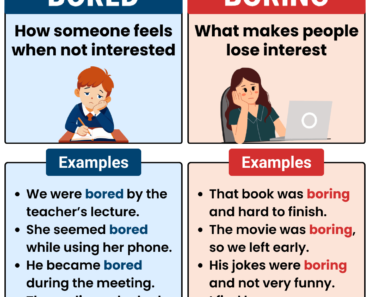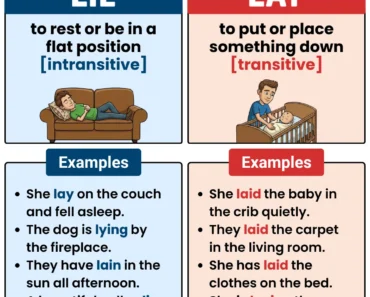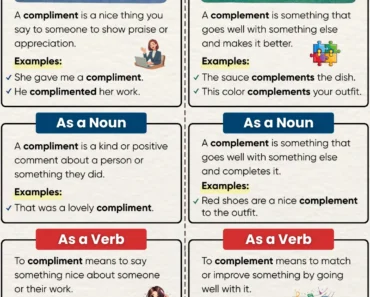
Unless is a word used in English to show a condition that must happen for something else to be true. It means “if not” and is common in everyday speaking and writing.
In this article, you will learn the meaning of “unless,” how to use it correctly in sentences, and see useful examples from everyday English. This guide will help you understand and use “unless” more naturally and confidently.
What Does “Unless” Mean?
Unless is a subordinating conjunction used to mean “if not” or to introduce a condition that would prevent something from happening. It is used to express a negative condition — a situation where something will happen only if another thing does not happen.
Basic meaning:
Unless = if not
Examples:
-
I won’t go unless it stops raining.
(= I will go only if it stops raining.) -
You can’t enter unless you show your ID.
(= You must show your ID or you can’t enter.)
How to Use “Unless” in a Sentence
1. Use “unless” to introduce a condition
The clause with “unless” gives the condition that will stop the action. The main clause comes before or after, just like with “if”.
- You can’t enter unless you have a ticket.
- Unless you study, you won’t pass the exam.
2. Use present tense after “unless” for real future conditions
Even when talking about the future, the verb after “unless” stays in the present simple.
Correct: Unless it rains, we will go to the park.
Incorrect: Unless it will rains, we will go to the park.
3. Use “unless” with positive verbs (no “not”)
Since “unless” already implies a negative meaning, do not use “not” after it.
Correct: She won’t come unless he invites her.
Incorrect: She won’t come unless he doesn’t invite her.
4. The clause with “unless” can come before or after the main clause
- You will fail unless you study.
- Unless you study, you will fail.
Sentence Structure with “Unless”
Here are common sentence patterns:
1. Unless + Present Simple, + Future Simple
- Unless you work hard, you won’t succeed.
2. Unless + Present Simple, + Imperative
- Don’t touch that unless you wash your hands.
3. Main Clause + Unless + Present Simple
- She won’t eat unless it’s vegetarian.
4. Unless + Past Simple, + Would / Could / Might
- I wouldn’t say that unless I were sure.
Difference Between “Unless” and “If… not”
In most cases, “unless” and “if… not” can be used with very similar meanings, but the sentence structure may change slightly. Both are correct, but “unless” is more concise and common in spoken and written English.
Examples:
-
Unless you hurry, you’ll miss the train.
= If you don’t hurry, you’ll miss the train. -
I won’t go unless you invite me.
= I’ll go only if you invite me.
Examples of “Unless” in a Sentence
- You won’t get into the building unless you bring your ID.
- I won’t go to the party unless you come with me.
- We can’t start the meeting unless the manager arrives.
- You won’t pass the test unless you study a little harder.
- Don’t call me unless it’s something urgent.
- She won’t forgive you unless you apologize sincerely.
- I’m not buying the shoes unless they go on sale.
- You won’t know unless you ask.
- They won’t let us in unless we have a reservation.
- You can’t improve your English unless you practice every day.
- I’m not leaving unless it stops raining.
- He won’t go to the doctor unless someone forces him.
- You can’t get a refund unless you have the receipt.
- I won’t help you unless you tell me the truth.
- Don’t expect her to answer unless it’s an emergency.
- We won’t finish on time unless everyone works faster.
- I won’t book the tickets unless you confirm the dates.
- Unless we hurry, we’ll miss the train.
- She won’t come back unless you promise to change.
- You can’t join the gym unless you’re over 16.







I’ve shared this with friends. More people need to know about
this site!